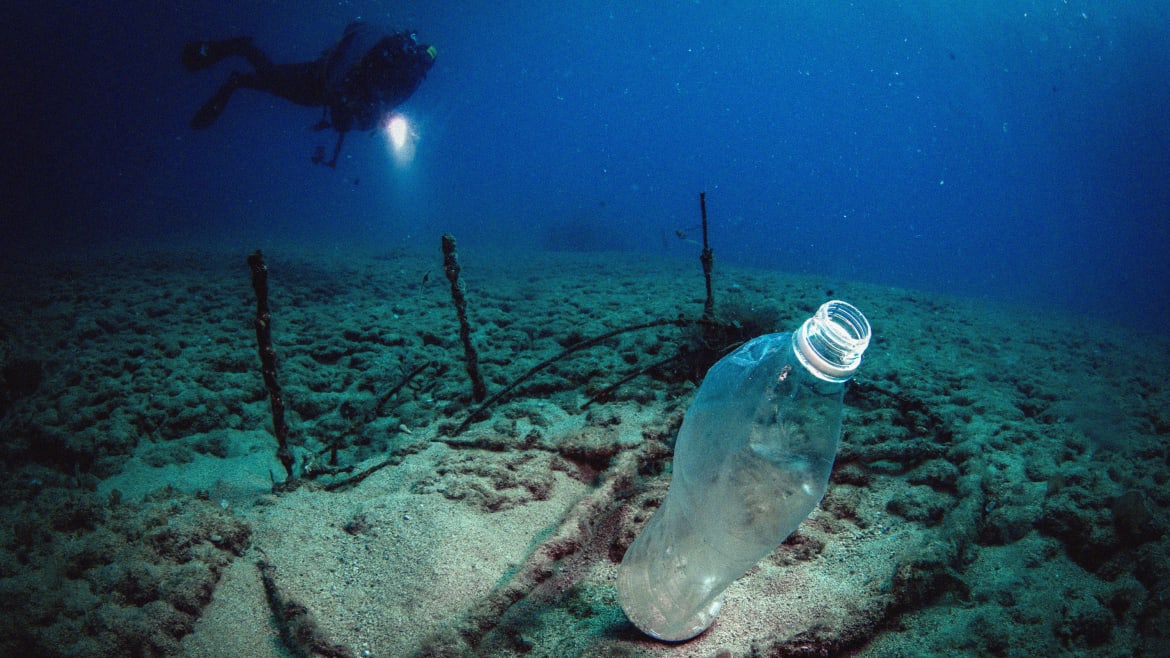Photo Illustration by The Daily Beast / Getty
Plastic pollution has hit crisis levels. It’s estimated that roughly 500,000 metric tons of plastic wind up in our oceans every year—a grim combination of land waste such as bottles, carpets, and food containers; and fishing industry equipment like buoys and nets.
The issue is that many of these plastics are incredibly durable, which means that they take a very long time to break down. This results in damage to ecosystems, harm to marine life, and even plastic making its way into our very bodies.
That’s why a team at Northwestern University created a solution that can break down one of the most pernicious and prevalent types of plastics—Nylon-6—in just a few minutes. The resulting byproduct is also clean, allowing it to be recycled and turned into durable plastic materials for later use. The team published a study of their findings on Nov. 30 in the journal Chem.

